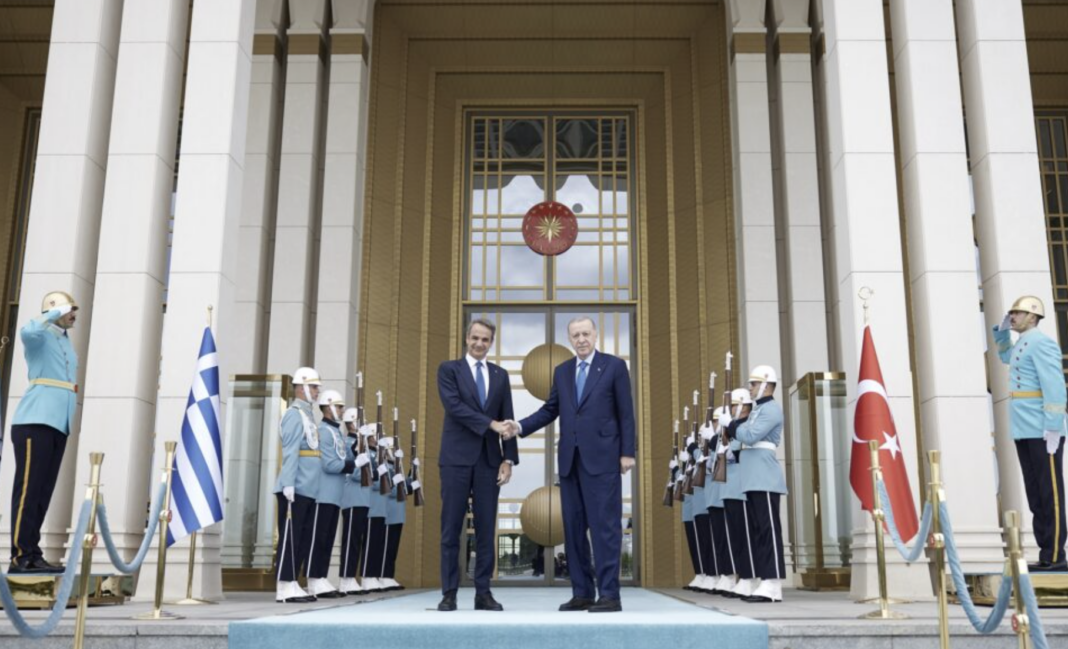No one can claim that Prime Minister Kyriakos Mitsotakis’ recent visit to Ankara and his talks with Turkish President Recep Tayyip Erdogan were scintillating. The fact that journalists were not allowed to ask questions facilitated the smooth outcome of the process, which, for the time being at least, served the purposes of both leaders.
Ekathimerini, May 27, 2024, by Costas Iordanidis
The conversion of the Byzantine church in Chora into a mosque, which was officially inaugurated shortly before Mitsotakis’ visit, caused reactions in Greece and was roundly criticized by ministers and commentators. Mitsotakis brought up the subject in his discussions with Erdogan and in the press statements that followed, expressing satisfaction over the fact that people from other faiths would still be able to visit the mosque, which had been a museum until its conversion. This is also the case with the other iconic Byzantine church, Hagia Sophia, which was also converted from a museum into a mosque – and this is, after all, what really interests UNESCO.
The Greek prime minister’s delegation was surprised by Erdogan’s decision to invite the Istanbul-based ecumenical patriarch to the lunch he gave on the occasion of Mitsotakis’ visit. Apparently the Turkish president thought that, with the patriarch at his side (whether he liked it or not) no one would be against him. The biggest surprise, however, came when Erdogan, responding to Mitsotakis’ initial statements to the press, chose to comment on the Greek prime minister’s definition of Hamas as a terrorist organization and to state that he regards the group as a resistance movement.
Various analysts in Greece interpreted Erdogan’s intervention as a bid to reach out to Islamist voters, whose appeal has increased significantly after the defeat the Turkish president suffered in the last local elections. It was, of course, a lot more than that.
In contrast to Greece, Edorgan’s foreign policy is that of a regional power. And he is interested, of course, in the United States’ efforts to create a multinational force that will govern Gaza once the war is over, with the participation of certain Arab states which have so far been hesitant to back the plan. Their skepticism is well justified given that the Americans are not prepared to send troops of their own and would rather act via proxies. Nor are any European members of NATO willing to become embroiled in such an adventure.Unmute
As the leader of the only Muslim country in NATO, with a presence in the region that stretches back centuries, Erdogan is obviously interested in the bigger game that is being played out in the Middle East right now. For centuries, the Ottoman Empire was a safe haven for Europe’s persecuted Jews. Likewise, modern Turkey, too, is untainted by anti-Semitism. The sole target of Erdogan’s criticism was the Israeli prime minister. Now we need to see what comes next.

